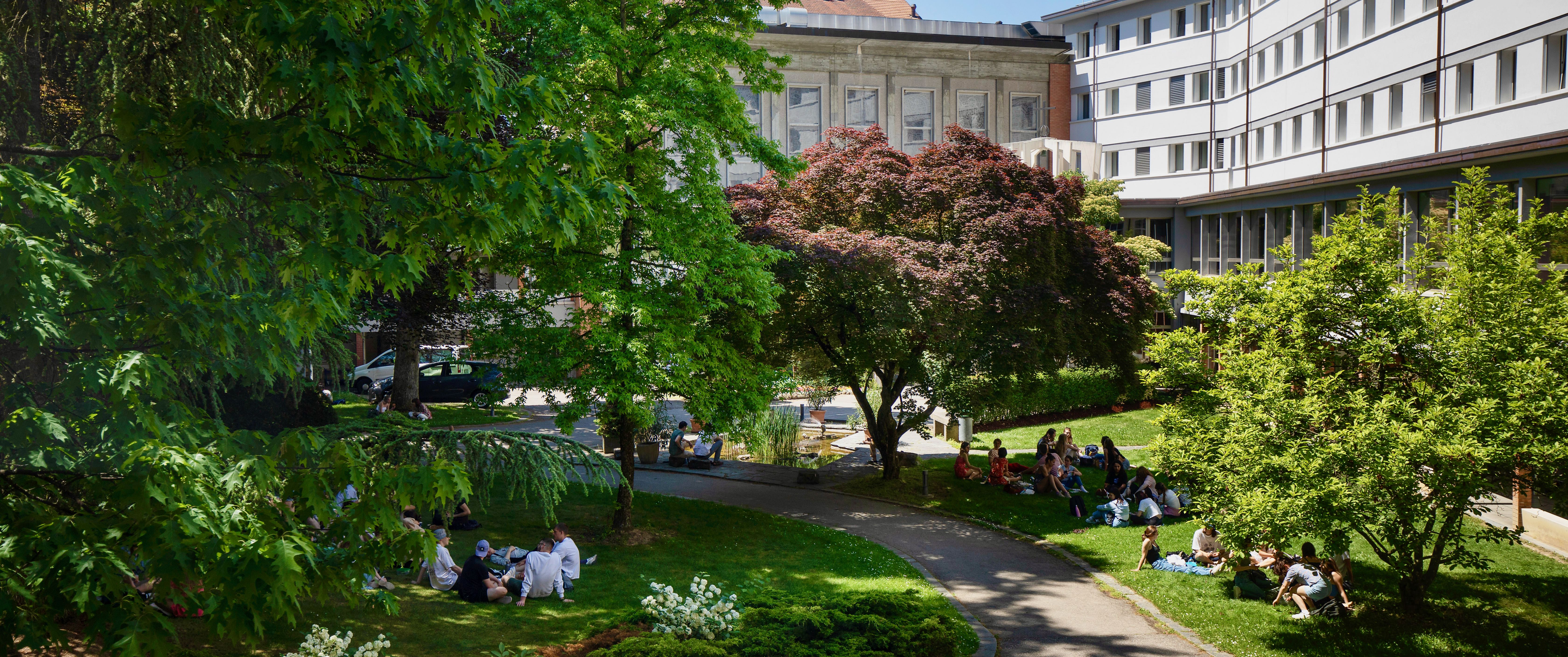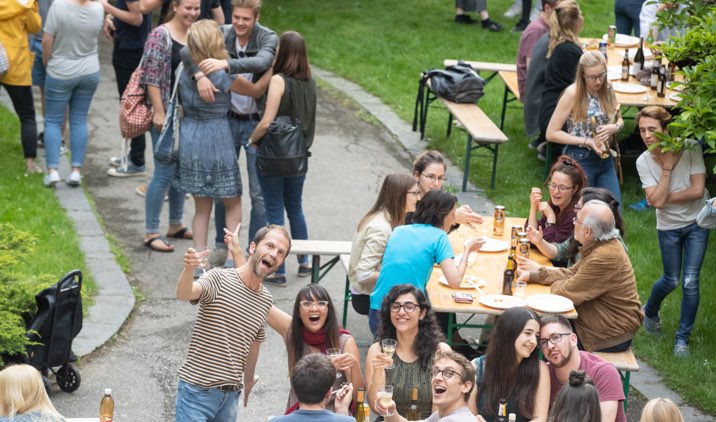Day of Cognition 2023
Wednesday, October 4th 2023

The Department of Psychology is dedicated to both top-level research as well as to excellence in teaching.
The Department of Psychology consists of a multilingual and diverse team doing research on an internationally excellent level. Our research spans a wide variety of topics, for example: how we sleep and how our sleep affects memory (Prof. Björn Rasch), how we recognise faces and how we differ in this ability (Prof. Roberto Caldara), how children memorise and learn mathematics (Prof. Valerie Camos), how eating disorders in adolescents can be treated, also with digital tools (Prof. Simone Munsch), how stress and emotions affect our physical and mental health (Prof. Chantal Martin-Sölch), how our emotions influence our relationships and family life (Prof. Dominik Schöbi), how our social interactions at work affect our physical and mental wellbeing (Prof. Petra Klumb), how we interact with vehicles and robots (Prof. Jürgen Sauer), and how language and social norms creep into the way we see the world (PD Dr Pascal Gygax & PD Dr Pascal Wagner-Egger).
The department also hosts two SNSF assistant professorships: Prof. ass. Salomé Kurth, SNSF Excellenza fellow, and Prof. Petra Vetter, SNSF PRIMA fellow. Prof. ass. Salome Kurth’s research focusses on how sleep rhythms develop in infants and how they are influenced by nutrition and family context. Prof. ass. Petra Vetter investigates how audition, emotion and cognition influence visual perception and visual brain processes, during conscious and unconscious perception and in the absence of sight, e.g. during blindness. Petra Vetter was also recently awarded a SNSF Consolidator Grant for studying how space is represented in the brain of people blind from birth.
We often work interdisciplinary and have active collaborations, for example, with the Department of Neuroscience (Faculty of Medicine), the Department of Computer Science, the Department of Multilingualism and Foreign Language Education, and we will be part of the new Centre for Nutrition Sciences. The Department of Psychology also hosts several institutes and centres, the Human-IST (Human Centered Interaction Science and Technology) Institute, the Institute for Family Research and Counselling, the Centre for Health Psychology, the Centre for Test Development and Diagnostics and the Psychotherapeutical Counselling Service.
We organise regular events, such as the Psychology Lunchtime Seminar series, where internal and external speakers are invited to present their latest research. This year, the Psychology Department also organises the “Day of Cognition” where any UniFR researchers working on topics related to cognition are invited to present their research. The one-day conference covers a wide range of research topic, from basic neuroscience to cognitive neuroscience, clinical applications, psychology, linguistics and philosophy.

Wednesday, October 4th 2023
Professors
Assistant Professors
Scientific Associates / Academic staff (of which 28 PhD students)
Administrative / Non-academic staff
Students
We teach more than 1000 students (>700 Bachelor and >300 Master students). The psychology study program offers a foundation of the scientific dimensions of human behaviour and experience. In the psychology curriculum (German, French or bilingual), students learn how our feelings, experiences, education and motivation affect us and what role the cultural and social environment plays. These processes are situated within a wider social and cultural framework and are intricately connected to the biological function of the human brain. At Bachelor level, we place particular emphasis on letting the students confront their experiences of everyday life with the insights of empirical psychology. The Master programme offers a more in-depth theoretical training with 7 specialisation options: Clinical and Health Psychology, Cognitive Neuroscience, Work and Organizational Psychology, Developmental and School Psychology, Clinical Child Psychology, Clinical Neuroscience, and Work and Health Psychology.
The Department of Psychology fosters a friendly, collegial and inclusive environment, and we strive to include students of all levels in our research activities as early as possible, through internships, lab rotations and hands-on research projects for Bachelor and Master theses.